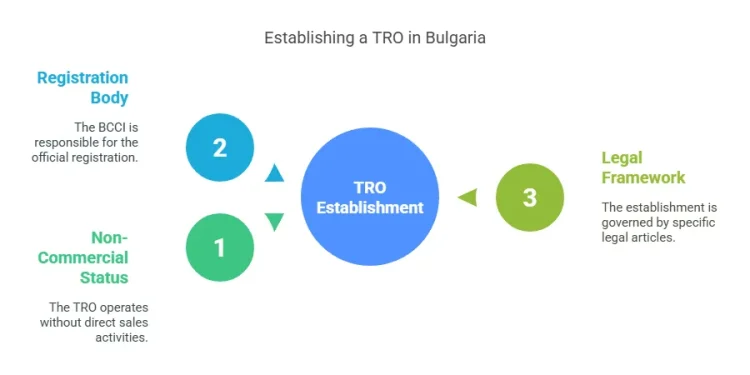Legal Steps for Company Formation for Non-EU Citizens in Bulgaria
Bulgaria has become an increasingly attractive destination for foreign investors and entrepreneurs looking to establish a presence in Europe. With its low corporate tax rate (10%), strategic location, access to the EU market, and relatively simple administrative processes, the country presents strong incentives for setting up a business. However, company formation for non-EU citizens requires navigating specific legal steps to ensure compliance with Bulgarian legislation.
Whether you’re an entrepreneur looking to expand your international operations or an individual planning a start-up, this article outlines the essential legal procedures for company registration in Bulgaria as a non-EU national.
Step 1: Choose the Type of Business Entity
The most common and straightforward legal entity for foreigners is the Limited Liability Company (OOD) or its single-owner equivalent – EOOD. This type of entity requires a minimal share capital (as low as BGN 2) and allows for a simple management structure.
Other legal forms include joint-stock companies (AD), partnerships, and sole proprietorships, but OOD/EOOD remains the preferred option due to its flexibility and low entry barriers.
Step 2: Reserve a Company Name
Before registering your company, you must select a unique name and check its availability in the Bulgarian Commercial Register. The name should not conflict with existing trademarks or business names. Once approved, you can reserve the name for up to six months, giving you time to proceed with the formalities.
Step 3: Prepare the Necessary Documents
Non-EU citizens must prepare a set of documents for starting a business in Bulgaria. These include:
- Articles of Association (for OOD) or Act of Incorporation (for EOOD)
- Minutes of the founders’ meeting
- Manager’s notarized signature specimen (referred to as specimen signature declaration)
- Declaration of compliance with Bulgarian laws (under Art. 13 and Art. 141 from the Commercial Act)
- Proof of share capital payment (typically deposited in a special bank account)
- Proof of company address in Bulgaria (rental contract or ownership documents)
If any of the documents are in a foreign language, they must be officially translated into Bulgarian and legalized.
Step 4: Open a Capital Deposit Bank Account
You must open a temporary bank account in the name of the company to deposit the required share capital. For OOD and EOOD structures, this can be as little as BGN 2 (approximately €1). The bank will issue a certificate of deposit, which is part of your registration documentation.
Step 5: Register the Company with the Commercial Register
All prepared documents are submitted to the Bulgarian Commercial Register, either online via a qualified electronic signature or in person through a registration agent or lawyer. The registration process typically takes 3–5 working days. Once approved, your company is officially established and can begin operations.
Step 6: Obtain a VAT Registration (If Needed)
If your company’s turnover exceeds BGN 100,000 annually or if you plan to engage in EU trade, VAT registration is required. Even if your revenue is below the threshold, voluntary VAT registration is often recommended for business partners and B2B transactions in the EU.
Step 7: Register for Social Security and Payroll (If Hiring Staff)
If you plan to employ staff in Bulgaria, you must register with the National Revenue Agency (NRA) for social security and payroll purposes. You’ll also need employment contracts, payslips, and monthly declarations to stay compliant with labor regulations.
Additional Considerations for Non-EU Citizens
As a non-EU citizen, you do not need to reside in Bulgaria to own a company. However, if you plan to work or manage your company directly in the country, you must apply for a residence permit and/or a business visa (type D). Having a registered company can support your application for long-term stay or even permanent residence in the future.
It’s also advisable to engage with a local lawyer or business consultant familiar with foreign company setup. They can ensure your registration runs smoothly and advise on accounting, compliance, and post-registration requirements.
Company formation for non-EU citizens in Bulgaria is a relatively accessible and cost-effective process, especially compared to other EU countries. With clear legal procedures, minimal capital requirements, and favorable tax conditions, Bulgaria offers a strong platform for business development. By understanding the necessary legal steps and partnering with local experts, non-EU entrepreneurs can successfully establish a company and tap into the opportunities of the European market. Search for a lawyer in Bulgaria. It is important to search for Master Supply Chain Management if you have some interest in this sphere, or accounting in Varna.










